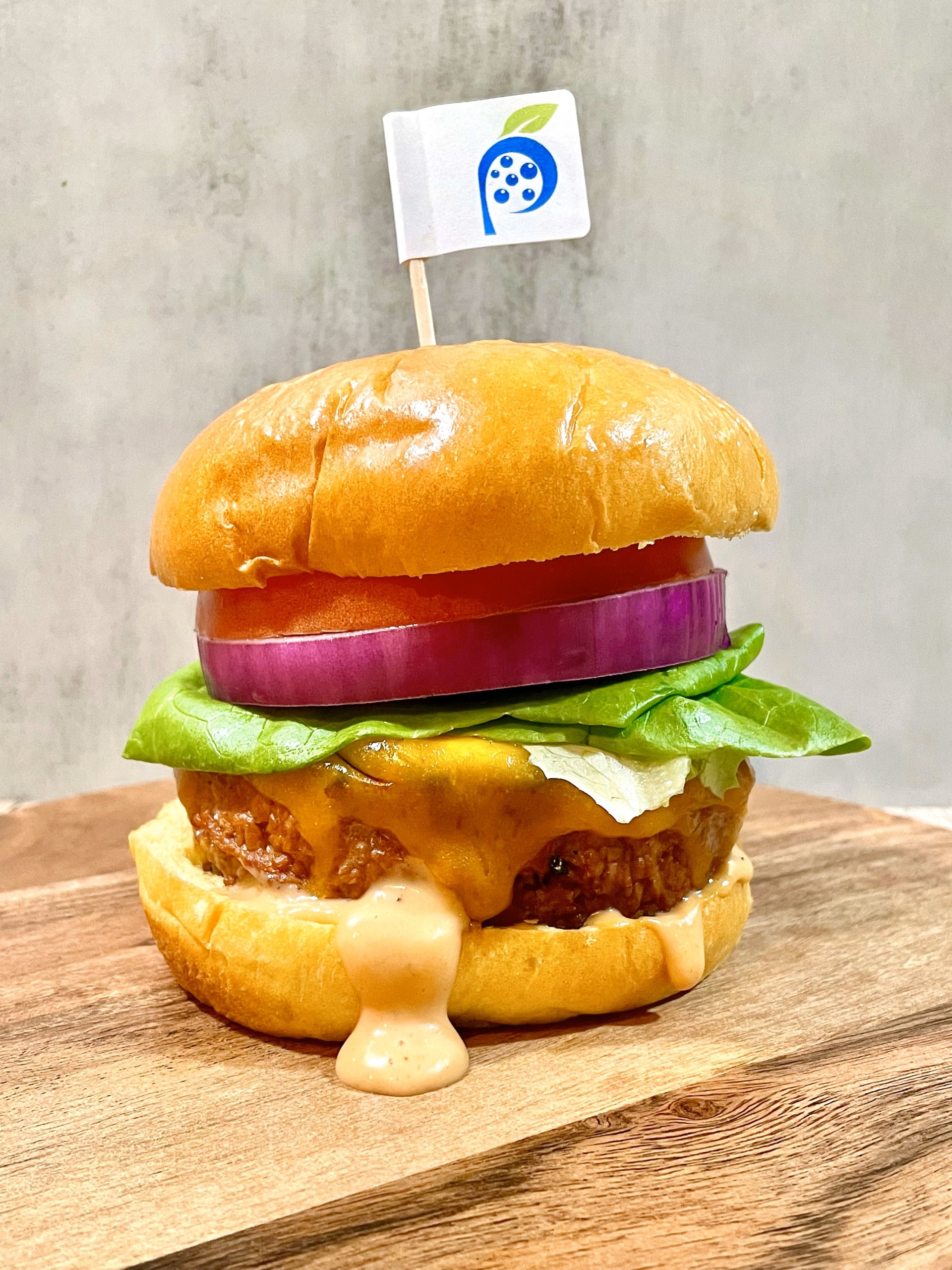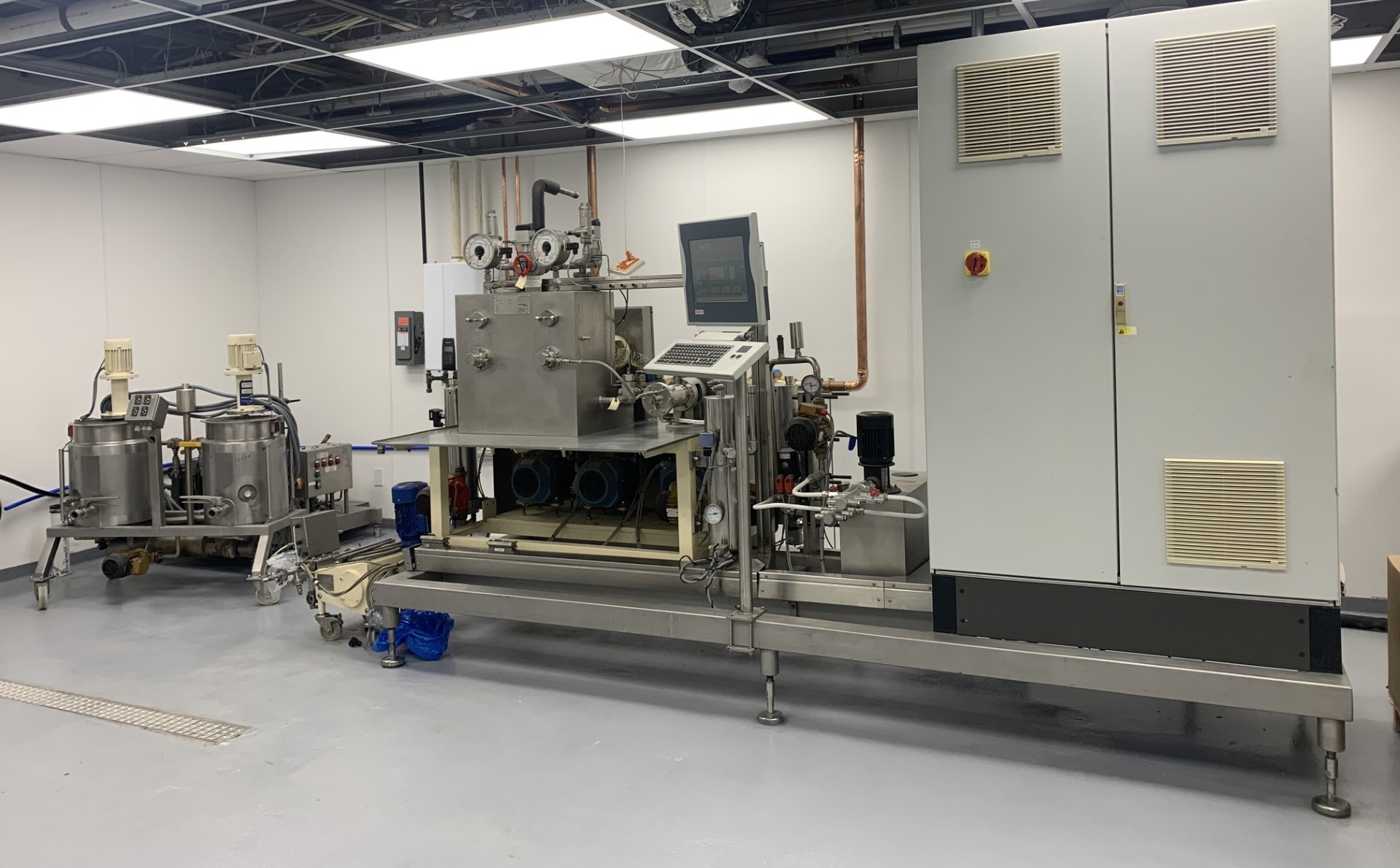
Vegan burger with Paragon Pure labeled pick. Photo: courtesy of Paragon Pure.
November 1st is World Vegan Day! Veganism has become a phenomenon in the United States over the last few decades, with Americans making adjustments to their diets for either health or ethical reasons. According to a study done in 2021, New Jersey was ranked the 6th “most vegan state” based on the vegan population, the number of vegan restaurants, vegan meetup groups, and animal welfare groups. New Jersey is also the highest-ranked state for the selection of vegan restaurants!
The holiday began in 1994 to commemorate the 50th anniversary of the Vegan Society. Despite the term “veganism” being coined in the 1940s, the practice of avoiding animal products can be traced back to over 2,000 years ago; figures such as Pythagoras and Siddartha Gautama (the Buddha) were known to promote vegetarian diets to encourage benevolence and equality among all species.
Katrina Nguyen-DeMary is a Rutgers University graduate student working toward her master’s degree in Food Science. The aim of her research at Rutgers’ Sensory Evaluation Lab is to understand the impact of daily rinsing with a cranberry polyphenol extract oral rinse on oral health. To understand the role of cranberry polyphenols in human nutrition and health, Nguyen-DeMary is investigating individual differences in salivary proteins, the oral microbiome, and the polyphenol mechanisms on the perception of bitterness and acidity. She is also an Ingredient Development Scientist at Paragon Pure, a company in Rocky Hill, New Jersey, that uses innovative food science to produce vegan food. We had a thought-provoking conversation regarding the production of vegan food at Paragon Pure and the benefits of veganism.
Tell us a little about Paragon Pure, its mission, and why it was founded.
Paragon Pure is a startup company founded in 2019 and located in Rocky Hill, NJ. Their mission is to use science to develop ingredients that are nutritious and environmentally friendly. They produce structured fats made from upcycled rice bran that can be used in a variety of applications, such as plant-based baked goods and alternative meat products. They also produce sprouted brown rice flour.
Chris Gregson (CEO) and Matt Sillick (CTO) have spent their careers in the food ingredients industry developing specialty ingredients. Chris has been a vegan for over 30 years. They both wanted to see a faster change toward more nutritious, sustainable, consumer-friendly ingredients and together, they founded Paragon Pure.

Vegan croissant breakfast spread. Photo: courtesy of Paragon Pure.
What ingredients are used in substitution for vegan products? Are they created using food science or naturally derived ingredients?
When developing baked goods that are vegan, eggs can often be replaced by pant-derived ingredients, like chia seeds, flax seeds, applesauce, or aquafaba (chickpea broth). There are products out there like “Just Egg” that have been developed to be used as an egg replacement and are made using a combination of ingredients to mimic the complex functionality of eggs. Mung beans are used as the main source of protein, where these proteins unfold and aggregate upon heating and create a texture that is gel-like. Emulsified canola oil is combined with surfactants like gellan gum and soy lecithin, which contributes to the texture and stability of the mixture. Transglutaminase is an enzyme used to crosslink the proteins, which increases the strength of the gel and water-holding capacity. Turmeric is used to impart a yellow color.
What are the stages of production?
The process is simple, but the technology is in the details. To make the solid structured fat, we heat fractionated oil and other components made from upcycled rice bran together with natural flavors. Next, these ingredients are mixed together and the material is fed into a scraped surface heat exchanger. This machine acts like a high-tech ice cream maker to cool the product while controlling the crystallization. This is then packed and shipped to customers.

Production equipment used at Paragon Pure. Photo: courtesy of Paragon Pure.
How is creating a vegan product different from a non-vegan product, if at all?
It really depends on the product being made, how many ingredient substitutions are being made, what type of ingredients are being used for substitutions, etc. Sometimes, the process is similar, and sometimes, it deviates. Although it’s not a Paragon Pure product, a vegan margarine would be produced similarly to how non-vegan margarine is produced, for example. On the other hand, the creation of a vegan egg is very different from the production of a hen egg.
Lastly, what are some of the benefits of veganism?
Some of the benefits of veganism include improved health, environment, and animal welfare. Individuals who follow a vegan diet tend to have higher intakes of fruits and vegetables compared to other diets. The vegan diet has also been found to reduce the risk of several diseases. Those who follow vegan diets tend to consume less saturated fat and cholesterol when compared to other diets. Reducing meat intake alone can result in a major decrease in one’s carbon footprint. Following a vegan lifestyle means that one does not consume animal products, wear clothes from animals, or use products that are tested on animals. This means that these individuals are reducing the amount of harm caused to sentient animals. The whole idea behind veganism is to reduce harm. As humans, we cause a lot of unnecessary harm, oftentimes without even thinking twice about it. The practice of veganism can help bring awareness and allow us to reflect on how harmful some of our current practices really are. I think this awareness will inspire change over time in the food industry, fashion industry, and beyond.
This article was written by OPOC Intern Emily Ranieri.

